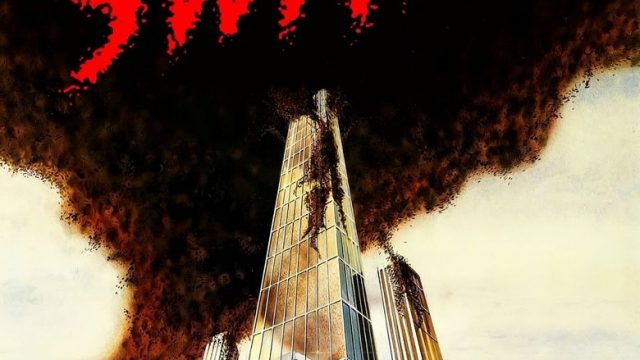I’ve been thinking lately about bad movies, in particular the various cults surrounding so-called “so-bad-it’s-good” movies. The term itself — usually used interchangeably with “guilty pleasure” — has been rubbing me the wrong way, not only because of the implicit condescension, but because of the cowardice behind the term. If you like something, what does it matter if it doesn’t fit into the box of what’s normally considered competent filmmaking? Why can’t we just like what we like, without the need to position ourselves above it?
And for that matter, what constitutes a bad movie anyway? I suppose an easy catch-all definition would be a movie that fails to achieve what it sets out to do — for perhaps the most notorious contemporary example, The Room fails spectacularly as the Tennessee Williams-esque chamber drama it’s straining so hard to be. But I’m not sure if it’s quite that simple for me. Does that make any movie that succeeds at its aims automatically good, even if the experience of watching it is miserable? I watched the uber-trippy sci-fi horror movie Beyond the Black Rainbow last year, and while it excels in building its bizarre, unsettling atmosphere and visuals, it is also maybe the most stupefyingly dull movie I’ve ever seen. So which is better? The Room is extremely incompetent by just about every conceivable standard, and yet I’d watch it a million times before I would go within 200 feet of Beyond the Black Rainbow again, despite the latter being incomparably “better.”
This is all a very roundabout way of approaching how I feel about 1978’s The Swarm, a movie widely reviled at the time of its release and largely forgotten now. Irwin Allen, who produced a big chunk of the disaster movies that dominated Hollywood in the 70s (including The Poseidon Adventure and The Towering Inferno), took up solo directing duties, and The Swarm, along with 1979’s Beyond the Poseidon Adventure (which Allen also directed), effectively killed the disaster genre for decades.
The Swarm opens with soldiers investigating a Texas missile base in which most of its staff appears to be dead by unknown means. There the soldiers discover Dr. Bradford Crane (Michael Caine, seeming vaguely embarrassed to be in this movie), an entomologist who insists that the base was attacked by a swarm of African killer bees. The military, headed up by General Slater (Richard Widmark), finds his claim preposterous, but it’s not long before two of their helicopters are taken down by the swarm. Meanwhile, a family picnicking in the nearby countryside is also attacked by the swarm, with only the young son escaping with his life. Dr. Crane, assisted by a doctor on the base (Katharine Ross) and several of his colleagues (including Richard Chamberlain and Henry Fonda), scrambles to find both a non-violent solution to take out the bees and an antidote to save the survivors (the bees’ venom is unusually potent, and has a tendency to kill even those who were only stung a couple times) but the swarm has already set its sights on the nearby town of Maryville, where they’re preparing for their annual Flower Festival. Great timing, that.
The movie proceeds more or less along the same lines as most of the Irwin Allen-produced disaster movies. There’s a love triangle subplot between Maryville’s school superintendent (Olivia de Havilland), the town mayor (Fred MacMurray), and a retired mechanic (Ben Johnson) that’s developed in earnest for the first half of the movie, until they’re all unceremoniously killed off in a train crash. (These movies really liked killing old people for whatever reason.) There’s not much skill in the filmmaking—I’m deathly afraid of bees and this movie wasn’t able to elicit so much as a squirm from me — but the movie’s so stone-faced about its absurdity that it’s entertaining nonetheless. There are multiple scenes in which people who have been stung hallucinate giant bees, and it’s hilarious every time, as seen here:
I suppose by most standards this would put The Swarm under so-bad-it’s-good territory. Bu t— and this is a concept I’m still struggling to get used to — I think it’s healthier for me and for serious filmgoers if we discard the qualifiers. The Swarm may not have a brain in its head, and it may fail at what it ostensibly sets out to do, but it’s entertaining, which is something that can’t be said for a lot of trash. It has value.

